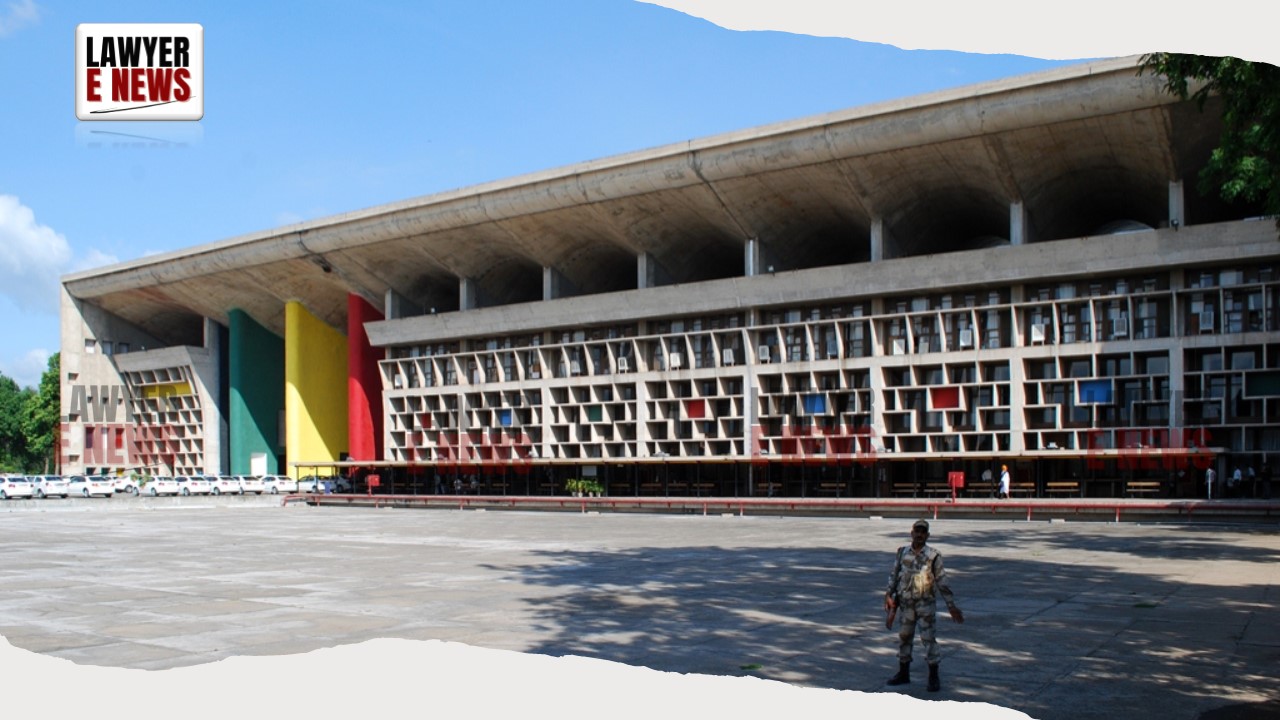-
by Admin
15 February 2026 5:35 AM



Punjab & Haryana High Court set aside recovery proceedings, including recovery certificates and arrest warrants, against a company director for provident fund dues. The court ruled that the director was merely an employee without control over the company’s operations and thus could not be considered an "employer" liable under Section 8B of the Employees' Provident Funds and Miscellaneous Provisions Act, 1952 (EPF Act).
The petitioner, Harjit Singh, was an employee of M/s Bawa Shoes Pvt. Ltd. who had been promoted to the position of Director in 1994-95. Despite his title, he had no financial or managerial control over the company's affairs and continued to receive a salary and contribute to provident fund (PF) and Employees’ State Insurance (ESI) schemes. Due to the company's default in paying PF contributions from November 2001 to February 2004, amounting to Rs. 2.27 crores, the Regional Provident Fund Commissioner initiated recovery proceedings against the company’s directors under Section 8B of the EPF Act.
Harjit Singh contended that he was a nominal director without control over company operations and could not be deemed an "employer" responsible for PF compliance under the EPF Act.
Definition of “Employer” and “Occupier” Under the EPF Act:
Whether a nominal director without operational control over the company can be deemed an "employer" or "occupier" and held liable for PF dues.
Civil v. Criminal Liability for PF Dues:
Distinguishing the conditions under which civil recovery can be initiated under Section 8B from the criminal liability provisions under Section 14A of the EPF Act.
Directors Without Control Over Company Operations Not Liable as “Employers” Under Section 8B
Justice Bansal examined the definitions of "employer" under Section 2(e) and "occupier" under Section 2(k) of the EPF Act. The court emphasized that under the EPF Act, an "employer" must have actual control over the affairs of the establishment. Since Harjit Singh was neither an "owner" nor an "occupier" with control over the company's factory operations, he could not be held liable for PF dues under Section 8B. The court noted:
"The Directors cannot be called as ‘owner’ of the company. Company is owned by its shareholders who carry limited liability."
The court further clarified that an "occupier" under the EPF Act refers to an individual who has ultimate control over the factory's operations, typically named in the company’s compliance forms as required under the Factories Act, 1948. Since Harjit Singh was not designated as an occupier or a manager, he did not meet the criteria for liability as an "employer."
Requirement to Proceed Against Company’s Assets Before Targeting Directors
Under Section 8B, the court observed that the Recovery Officer is mandated to first attach the properties of the establishment before proceeding against an employer’s assets. The court noted that in this case, the company's properties had already been attached but could not be realized due to competing claims from secured creditors under the SARFAESI Act. Nevertheless, the court held that Harjit Singh could not be targeted for recovery as he did not hold the requisite status of control over company affairs.
Distinction Between Civil and Criminal Liability Under the EPF Act
Justice Bansal distinguished between civil liability for PF recovery under Section 8B and criminal liability under Section 14A of the EPF Act. While Section 8B holds those in control of the company (such as an employer or occupier) civilly liable, Section 14A allows for criminal prosecution of directors and officers responsible for the company’s day-to-day conduct. The court clarified:
"For criminal liability, every person who is either in charge of and responsible for the conduct of business of the company or any Director, Manager, Secretary or other officer with whose connivance, consent, or negligence the offence has been committed shall be guilty and proceeded against."
The court concluded that although Harjit Singh could potentially face criminal liability under Section 14A in a separate trial, he could not be held civilly liable under Section 8B due to the lack of control over company operations.
Employees’ State Insurance Corporation, Chandigarh v. Gurdial Singh and Others (1991): The Supreme Court held that liability under social welfare legislation depends on the individual's role and control within the company.
Vijay Aggarwal v. The Recovery Officer, EPF Act (2009): The Punjab & Haryana High Court held that directors without control over the company’s financial and operational decisions could not be held liable for recovery of statutory dues.
Vivek Goel v. Employees’ Provident Fund Organisation (2022): The court emphasized the requirement to exhaust remedies against the establishment’s properties before proceeding against directors.
Petition Allowed: The court quashed the recovery certificate, show cause notice, and arrest warrants against Harjit Singh, holding that he could not be subjected to civil recovery proceedings under Section 8B of the EPF Act.
Clarification on Director Liability: The court reiterated that only those directors or managers with control over company affairs fall within the definition of "employer" or "occupier" under the EPF Act and can be held liable for PF dues.
Separation of Civil and Criminal Liability: While Harjit Singh may face criminal liability under Section 14A, he cannot be held civilly liable for PF dues in the absence of proof that he was an employer or occupier.
Date of Decision: September 27, 2024
Harjit Singh and Another v. Regional Provident Fund Commissioner, Amritsar, and Another
